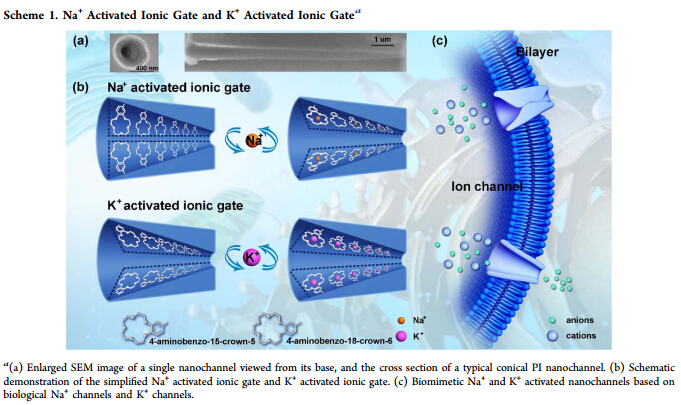In living systems, ion conduction plays a major role in numerous cellular processes and can be controlled by biological ion channels in response to speci?c environmental stimuli. This article describes biomimetic ionic gates for ion conduction based on sodium and potassium activated nanochannels. The Na+ activated ionic gate and K+ activated ionic gate were developed by immobilizing the alkali metal cation-responsive functional molecules, 4′-aminobenzo-15-crown-5 and 4′-aminobenzo-18-crown-6, respectively, onto the conical polyimide nanochannels. When the ionic gate was in the presence of the speci?c alkali metal cation, positively charged complexes formed between the crown ether and the alkali metal cation. On the basis of the resulting changes in surface charge, wettability and e?ective pore size, the nanochannel can achieve reversible switching. The switching behaviors of the two complexes di?ered due to the di?erences in binding strength between the two complexes. The Na+ activated ionic gate is able to open and close to control the ion conduction through the nanochannel, and the K+ activated ionic gate enables selective cation and anion conduction through the nanochannel. The Na+ and K+ activated ionic gates show great promise for use in clinical medicine, biosensors and drug delivery based on their high sensitivity and selectivity of being activated, and good stability. JACS, 2015 
|

